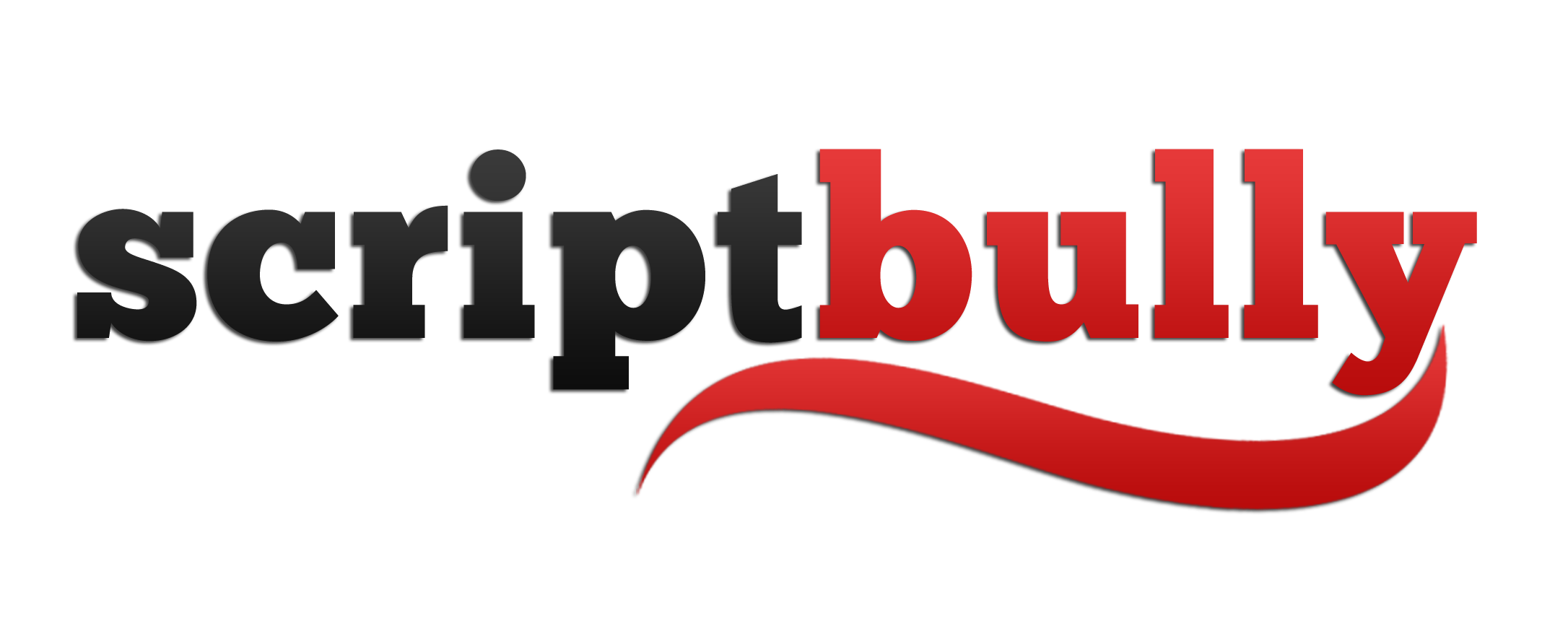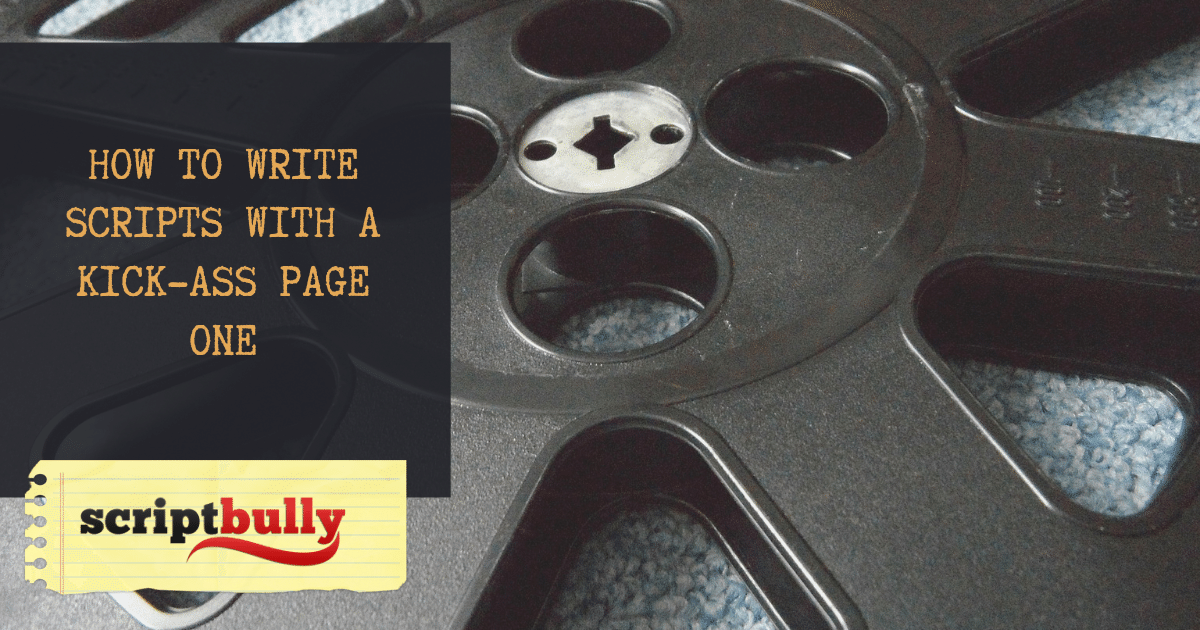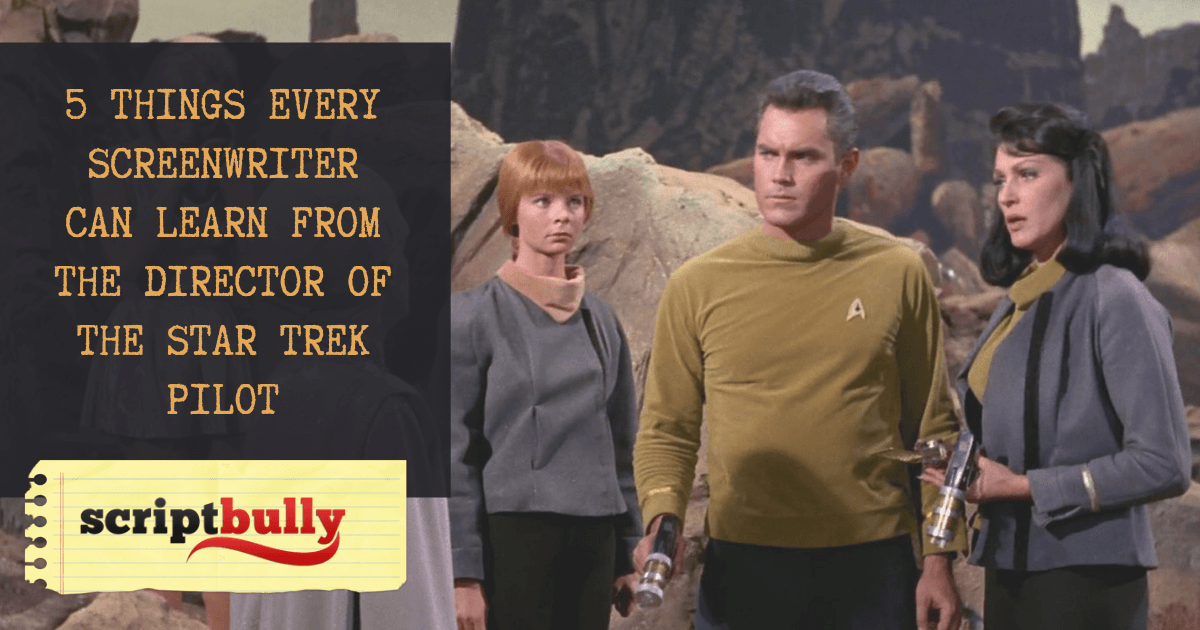When you’re learning how to write scripts, sometimes it’s best to keep things simple. (And not months and months working on screenplay structure.)
Write a great page one with the entire focus to get them to page two, and you’ll have built up some serious momentum for your story. (Almost as much momentum as you built by opting for “Zombies Vs. Vampires” as your screenplay title.)
And I can tell you, as a former script reader, I may have been contractually obligated to read an entire script, but I knew RIGHT from Page One whether I was in good hands for the next 105 pages or so. (Side Note: Show me that you’ve learned how to write screenplay description that didn’t put me to sleep and I’d pound the table for your script to get considered.)
So, in this installment of Screenwriting Hacks, I recorded a short video breaking down some tips on how to write scripts with a kick-ass awesome page one:
How to Write Scripts With a Kick-Ass Page One (Transcript)
Hi there, it’s Michael from ScriptBully magazine, and in this quick video, I’m going to share with you a super easy technique to help your screenplay stand out from the pack and catch the attention of film industry veterans from page one of your script.
I don’t do nearly as much script coverage as I used to.
For one thing, I’ve been re-watching the entire Rockford Files series on Netflix, and that has taken up SO MUCH of my time.
But there was a period when I would read 5-7 scripts a week. (Most of them awful and most of them about zombies.)
And no matter what the genre or subject or number of vampires the script had…
…nearly ALL of the scripts on the first few pages LOOKED EXACTLY the same.
And that was…
…the text on the page formed a long “T”.
Like so:
This happens when a writer opens a script with two lines of description…
…and then LINES and LINES and LINES of dialogue.
For instance.
EXT. DESERT ROAD – DAY.
The Mojave desert. A lizard sits on a rock in the scorching heat. A tumbleweed blows across the road.
And then characters would start talking and going blah-blah-blah
And while I LOVE dialogue as much as the next underpaid, overworked screenplay reader, I started out as a playwright where dialogue is absolute king, after awhile it gets REALLY REPETITIVE.
And quite honestly, it usually takes a screenplay reader a COUPLE OF PAGES to warm up to what your story is about. (Same for viewers.)
So if you throw in some crucial, emotional (super clever) dialogue in the first two pages of your script, then a SCREENPLAY READER probably won’t appreciate it as much as you desperately want them to.
So if you throw in some crucial, emotional (super clever) dialogue in the first two pages of your script, then a SCREENPLAY READER probably won’t appreciate it as much as you desperately want them to.
So, for this week’s ~QUICK TIP~
===============================
Don’t Rush Into Your Dialogue
===============================
Instead of settling for a line or two of scene description, and then head off to the DIALOGUE RACES for TWELVE PAGES
…take a breath.
Relax.
Build small blocks of visual scene description, one right after another.
In different locations.
Give the reader a chance to get to know your world. (First from a long shot, then a close up.)
Give us characters doing things in the first two pages of your script. (We don’t have to know WHY they’re doing things yet. Just show them DOING them.)
And then START up with your dialogue around PAGE 3.
Trust me, if you do that effectively, your script will REALLY stand out.
And when you do use dialogue for the first time, your character’s words will have much MORE PUNCH than you could ever imagine.
So, if you’ve enjoyed this little nugget of screenwriting wisdom please leave a comment below this video or tweet it or Facebook like it.
And if you’d like a copy of of my eBook 7 Secrets to a Kick Ass and Marketable Screenplay…just follow the link in the description and head over to ScriptBully.com go get instant access.
What’s Your Screenwriter Take?
Any tip you’ve picked up learning how to write scripts with a killer page one? Let us know in the comments below.







love your words of wisdom, thanks,
and yeah i just love films that start with zero dialogue for the first scene or two or three